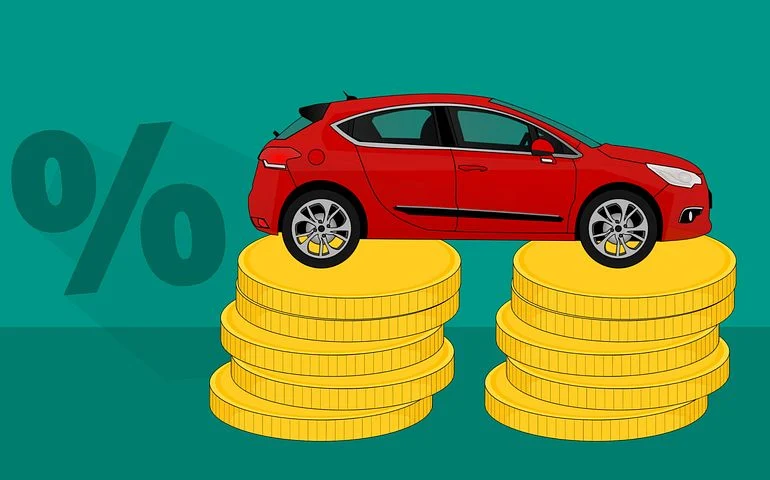How much do you spend on auto insurance each year? If it’s more than $1,000, then it’s time to figure out how to save money on your auto insurance. Whether you shop around or try to haggle with your current provider, these tips will help you find ways to cut your costs and keep more money in your pocket at the end of the month.

Find an insurance broker
When you’re searching for auto insurance quotes, start by asking a local insurance broker. Since they work with several carriers, they may be able to find you a better deal than what’s currently advertised. Additionally, when you go through an insurance broker, your personal information stays between them and their agents; it won’t go directly into an insurer’s database. As you search online for auto insurance quotes, keep in mind that sometimes these sites pull data from insurers’ databases, which can lower your quote due to age or other factors that aren’t relevant to coverage. If you do decide to get auto insurance quotes online—or use any service not run by an insurance broker—remember that cheap is not always best. Getting auto insurance quotes doesn’t cost anything extra, but switching carriers does cost time and money. A $200 price difference might save you $50 per month—but if it costs you another $200 in switching fees, it might not be worth your time or effort. And before signing up for auto insurance coverage with any company, make sure to read over all of its terms very carefully (including options like collision vs. comprehensive coverage). With auto insurance, you never want to take things at face value—and trust is one of your most important traits as a consumer.
While browsing for auto insurance quotes, set yourself up for success by being prepared: know how much auto insurance you need; know what kind of vehicle(s) you have; and know approximately how much annual mileage you typically put on each car (this will help determine your deductible).

How much coverage do you need?
The first question most people ask when purchasing car insurance is, How much coverage do I need? The answer is different for everyone, but you should always aim to have at least enough liability coverage to cover any injuries you cause to another driver or passenger in an accident. In most states, minimum liability limits are $50,000 for one person and $100,000 per accident. You might also want to consider additional coverage like uninsured/underinsured motorist, collision, comprehensive and medical payments. Collision covers damage caused by a crash; comprehensive pays out if your vehicle sustains damage due to causes other than a crash (e.g., vandalism). Medical payments covers medical expenses for passengers injured in a crash. Some insurers provide both underinsured and uninsured motorist coverages as part of your policy, while others make these optional—it’s up to you to decide whether it’s worth paying extra for them. Car owners may be tempted to set low deductibles in order to keep their premiums low. But doing so could hurt you financially if you get into an accident—especially because high-deductible policies generally cost less than those with lower deductibles.

What deductible is right for you?
The deductible is your out-of-pocket limit, in other words, how much you’re willing to pay if something happens. The higher your deductible, the lower your premium payments are. Auto insurance deductibles usually range from $250 to $2,500. If you only drive locally and don’t have a car that would cost a lot of money to fix, try saving money by choosing a high deductible—say $1,000 or even $2,500. For example, say your auto policy has a $250 deductible and you need new tires for your 2013 Toyota Corolla. Tires for Toyota Corollas generally run about $300 per tire. By opting for a higher deductible, you can save yourself more than half what it costs to buy four new tires! Of course, it does mean that should an accident occur, auto insurance quotes estimates might be in your future—and maybe even out of pocket expenses too! Still not sure which one is right for you? Find out at What Is My Car Worth. Auto insurance quotes vary by vehicle type, where you live and various other factors like your driving record so there are no easy answers here; auto insurance quotes online help but what is right for one person may not be right for another so talk with your agent to get an idea on how deductible works in auto insurance quotes premiums before making a decision.

Can you lower your auto insurance?
When it comes to lowering your auto insurance rates, a little knowledge goes a long way. Getting auto insurance quotes is a good first step toward understanding how insurance companies calculate risk and determine their premiums, but there are plenty of other ways you can affect your premium without changing insurance companies. Some strategies will lower your costs in just one or two years; others may be more long-term investments that can pay off over time. But all are worth looking into. So what’s out there? Consider these options:
Before you purchase auto insurance for yourself or for your family, make sure to get the best deal possible by comparing policy offerings from different insurers online with Bankrate’s car insurance quote comparison tool. The site allows users to easily compare average prices and benefits side by side, so they can select an appropriate plan based on coverage limits, deductibles and more. Plus, each of these quotes is guaranteed for 30 days. So there’s no obligation to buy when you receive them. You may be able to save money on your current policy as well!
From low-risk safe drivers who maintain good grades in school (and thus may not need such a high deductible) to teens that have taken a driver safety course (and therefore could qualify for discounts), insurers are constantly looking for ways to better predict risk and reward customers that drive safely.
Get all the discounts
Discounts are great, but even better are discounts you didn’t know about. Review your current policy—are there any discounts you haven’t used in a while? If so, call your insurer and see if they can apply them retroactively. You could be saving money right now without even knowing it! Remember, auto insurance is just like health insurance: The more coverage you have, typically, the higher your premium. So opt for more coverage only if you need it. Even if you do get a discount, make sure you check your policy language. Sometimes car insurers reward customers with policies that have lower monthly premiums but don’t cover certain types of damage or injury. Before accepting such a discount, make sure it doesn’t expose you to undue risk later on down the road. For example, if your plan only covers physical damage and not personal injury, you might end up paying more out of pocket than expected at claim time. In short: Know what your plan covers before accepting additional discounts. It’s one thing to save $50 a month; it’s another thing entirely to find yourself fighting an insurer over whether an injury is covered under personal injuries versus physical damages. That said, if you do accept a discount, document everything clearly in writing. One tip we found particularly helpful: Take pictures of your vehicle prior to making any claims. This provides documentation that things were okay when you reported them as damaged/stolen/whatever. Ideally, take pictures from all angles including front, back and both sides as well as close ups of scratches or dents. Simply put, though, you want to prove that something wasn’t broken previously (or existed in a different way) compared to how it was after-the-incident. That should help avoid disagreements down the line should anyone ask questions about why your estimated costs aren’t matching reality. Also consider keeping notes of phone calls with your insurer; many people forget who they spoke with and what was discussed during those calls.
Can you get online auto insurance?
One of the best ways to save money on auto insurance is by going online. By entering your zip code, you can get a free quote. You can then compare prices and policies and decide which one fits you best. It doesn’t cost anything to get quotes online, so what are you waiting for? It’s quick and easy! A few minutes of work may save you hundreds—or even thousands—of dollars every year. Of course, it’s always smart to shop around when shopping for auto insurance. When getting multiple quotes, try comparing premium rates (the dollar amount paid) as well as coverage limits. With different levels of coverage, there are no hard-and-fast rules about how much you should spend on auto insurance. However, most experts agree that if you have assets like property or investments that would be at risk in an accident or lawsuit, higher coverage amounts are probably wise. For most drivers, however, purchasing more comprehensive coverages is unlikely to make sense financially; instead, focus on finding a company with low-cost premiums and high customer satisfaction ratings. The right company could end up saving more money than any other factor. Don’t forget to look into using discounts. Many people choose their auto insurance company based on price alone, but ask about available discounts before making a final decision. Discounts might include things like bundling home and car together under one plan, placing security devices in your car or adding safety features such as airbags or anti-lock brakes. Not all companies offer these perks, so do some research and read those fine print details! Put down some cash upfront: Picking up your auto insurance policy immediately rather than paying monthly or quarterly will help you get better rates. Not only will your insurer see that you intend to keep continuous coverage, they may also reward you with lower rates since they won’t have to worry about collecting from non-paying customers. Make sure you go through an approved insurance agent, though. Buying directly from a company might not count toward your credit history. Beware of gap insurance: Some brokers may claim that gap insurance is necessary because it covers losses caused by depreciation in value or when repair costs are greater than what your car was worth after its most recent accident. Consumer advocates argue, however, that gaps only occur with leased cars and therefore should never be used. If you lease your vehicle, investigate whether buying gap insurance is required. Ask questions before you buy: Asking questions about your policy prior to its purchase will ensure you know exactly what you’re signing up for. If a question stumps you, call another agency.

I liked that you said that you could get the best possible deal on an auto insurance policy when you compare the offerings from insurance companies. My husband and I will take note of this because we are planning to purchase an insurance policy for our new sedan next week. We want to choose an insurance policy that can best meet not only our needs but also our budget, so we will do your tips.
Okay,that’s a good decision, I wish you best of luck.
It was nice that you said that you could go online in order to get quotes and compare the prices of auto insurance companies. My husband and I are planning to shop for an auto insurance policy for our family SUV. Since we want to find the best possible deal before completing the purchase of an auto insurance policy, we will do your tips.